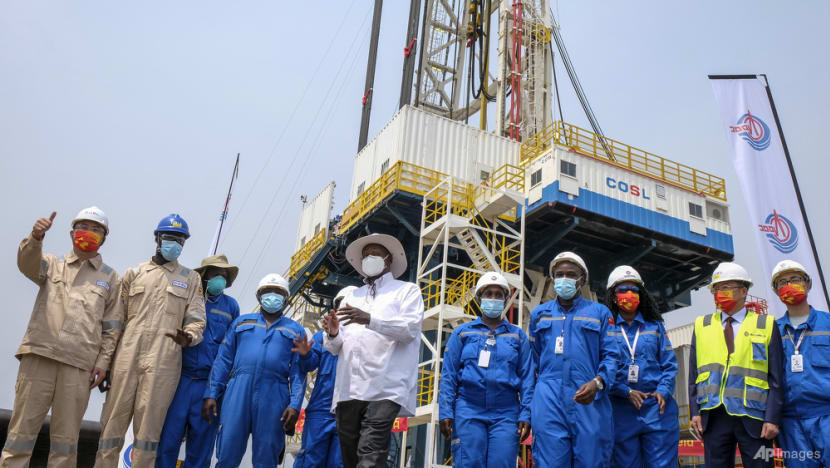
DAR ES SALAAM (Tanzania), April 25 (NNN-CNA) — As the global power rivalry between China and the United States heats up, African nations will have to pick the right partners that will benefit them not only in the short term, but also in the long run, said observers.
China has been trying to gain a foothold in Africa over the years, while the US is looking to reassert itself as a partner of choice.
Chinese investments in Tanzania, one of the fastest-growing economies in Africa, have soared in recent years.
“Over the last 10 years, from 2013 to 2023, China has invested close to US$10 billion worth of investments in the country. On average, (that’s) a billion dollars a year,” said Gilead Teri, executive director at the Tanzania Investment Centre, an agency promoting and facilitating investment in Tanzania.
The US$3 billion Sino-Tan Industrial Park, for instance, is rapidly taking shape. When completed later this year, it is expected to create up to 600,000 direct and indirect jobs.
The industrial park is located about a three-hour drive away from Dar es Salaam, the country’s largest city.
It is largely funded through loans from China, which is Tanzania’s biggest trading partner.
Tanzanian Vice President Philip Mpango said: “Tanzania is ready for business and (President Samia Suluhu Hassan’s) administration is firmly committed to make Tanzania one of the most attractive investment destinations in our region.”
Meanwhile, the US is also making strategic investments and strengthening trade links.
As of December last year, the US has 283 projects registered at the Tanzania Investment Centre, according to government figures. The businesses provide around 55,000 direct and indirect jobs to locals.
Last year, US Vice President Kamala Harris promised to facilitate up to US$500 million in financing to help American companies export goods and services to Tanzania.
The Sino-US battle for influence is also unfolding across the rest of the African continent.
Besides Tanzania, China’s involvement is deeply felt in Uganda and South Sudan.
In Uganda, the Isimba Hydropower Plant and the Karuma Hydroelectric Power Station have transformed the country’s energy sector. Both dams are financed by China.
Ugandan President Yoweri Museveni said: “The government of China and the people of China are reliable partners of Uganda and of Africa.”
In South Sudan, China accounts for around 75 per cent of petroleum exports and plays a pivotal role in the impoverished country’s economy.
Former South Sudan minister for presidential affairs Barnaba Marial Benjamin said: “When (China’s) Belt and Road project started, giving US$60 billion to the African countries, we thought that this would be a great opportunity for South Sudan to benefit.”
China’s seemingly no strings-attached loans make it a more attractive partner, said some observers.
“The West certainly has an arms length with Africa. They were funding Africa as poor countries and they were dictating rules around democracy and governance,” said Joseph Sheffu, country head at consultancy firm EY Tanzania.
“China was a bit neutral on that aspect, but over time China developed. The development of China required resources and partnerships, and they were pretty fast to link those relationships with Africa.”
Dr Liu Baocheng, dean of the University of International Business and Economics’ Center for International Business Ethics, said it is not too late for the US to try and catch up, especially in improving the livelihood of Africans by providing better employment opportunities and skills training.
“China and the United States have different advantages in exploring the African marketplace,” he said.
When asked about the abundance of critical minerals in the continent, Dr Liu said it is ideal for African countries to secure a stake and develop their own industry.
“But at the moment, many African countries do not really have the industrial capacity that can really fully utilise their own resources,” he added.
“Hopefully, through the reallocation of some key technologies and also through the development of infrastructure, the industrialisation and urbanisation can take on a more rapid pace in Africa.” — NNN-CNA
